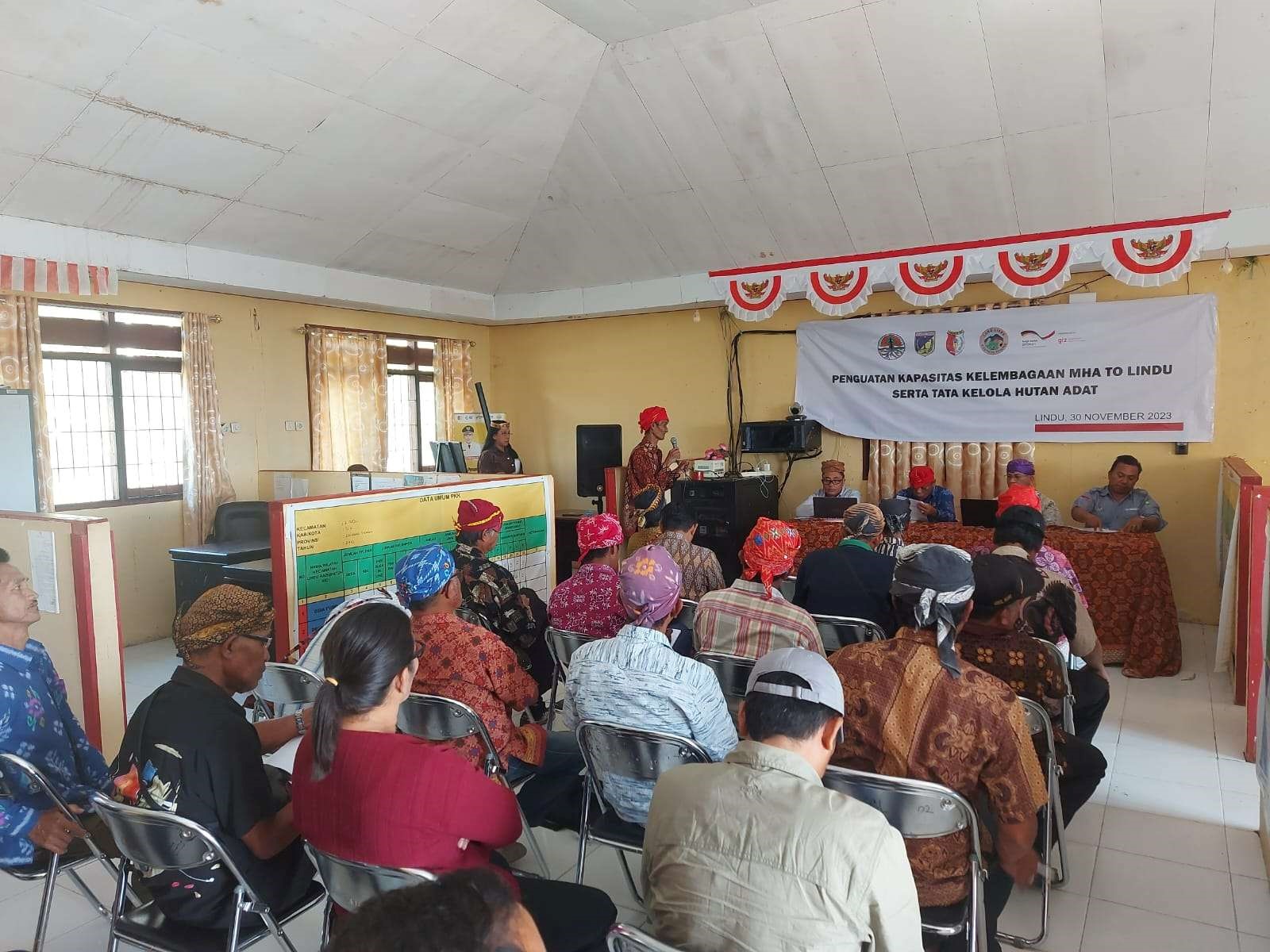
The strengthening of community capacities, especially among social forestry groups, is one of the empowerment activities that is being facilitated by FORCLIME through various activities, including training, counseling and technical guidance, among others. The ultimate goal in this regard is to increase community knowledge, capacities and capabilities so that communities can become independent and can manage forests sustainably while improving their overall standards of living.
Both the Lore Lindu National Park (BBTN Lore Lindu) and FORCLIME realize the importance of strengthening their institutional capacities, as well as their community independence. With an eye on these goals, a coaching session that aimed to strengthen the institutional capacities of the To Lindu Customary Law Community was held on 30 November 2023 in Lindu Village, Sigi Regency, Central Sulawesi. The session, which was opened by the Head of the Lindu District Office, Mr. Sebulon, SE., aimed to increase understanding of the relevant institutions and governance so that all members of the To Lindu customary community were able to gain equal knowledge relating to the management of their customary forests.
“Activities like this will ultimately have an impact and should increase the capacities of the Customary Law Community of To Lindu in terms of its institutional roles and functions”, explained Mr. S. Toley, Chair of the To Lindu Traditional Council. Mr. Toley went on to add, "Currently, the To Lindu needs to focus more on the self-reliance of its institutions and the preparation of a new generation of young people. As a result, collaboration between related parties is very much needed."
The To Lindu Customary Law Community has, for many generations, had the following rules in place for the division of the various territories that are regulated by the To Lindu Customary Council:
- Wanangkiki Forest, namely forest areas that cannot be managed by communities at all, including upstream river areas.
- Ntodea Protected Forest, which people can utilize in order to meet their limited needs, including palm trees for their fruit and leaves, the latter of which can be used to make palm fiber.
- Pangale Forest, which are community cultivation areas that implement five-year fallow periods in relation to farming and agriculture.
- Pobondea Forest, which can be planted with productive plants, including coffee.
- Popampa, which can be planted with secondary crops.
- Polida, which comprise areas of rice fields.
The meeting resulted in the following recommendations:
1. The activation and improvement of the Customary Council and Customary Body of the To Lindu.
2. The preparation of a regular meeting schedule for the To Lindu Customary Council and the To Lindu Traditional Body.
3. The improvement of customary regulations in relation to customary forests and the management of Lake Lindu.
4. The provision of a meeting place at the traditional assembly level (bantaya/lobo) that will involve five villages (Puroo, Langko, Tomado, Anca and Olu).
5. The development of a customary forest management plan in accordance with the potential utilization and development of businesses through the involvement of young people.
6. The formation of the Lake Lindu Management Forum and the Lake Lindu Community Movement.
For more information, please contact:
Arif Hidayat, Junior Forestry and Biodiversity Advisor
Ismet Khaeruddin, Senior Adviser, Biodiversity Focal Point for the KFW Forest Program 3 and Provincial Coordinator for Central Sulawesi






